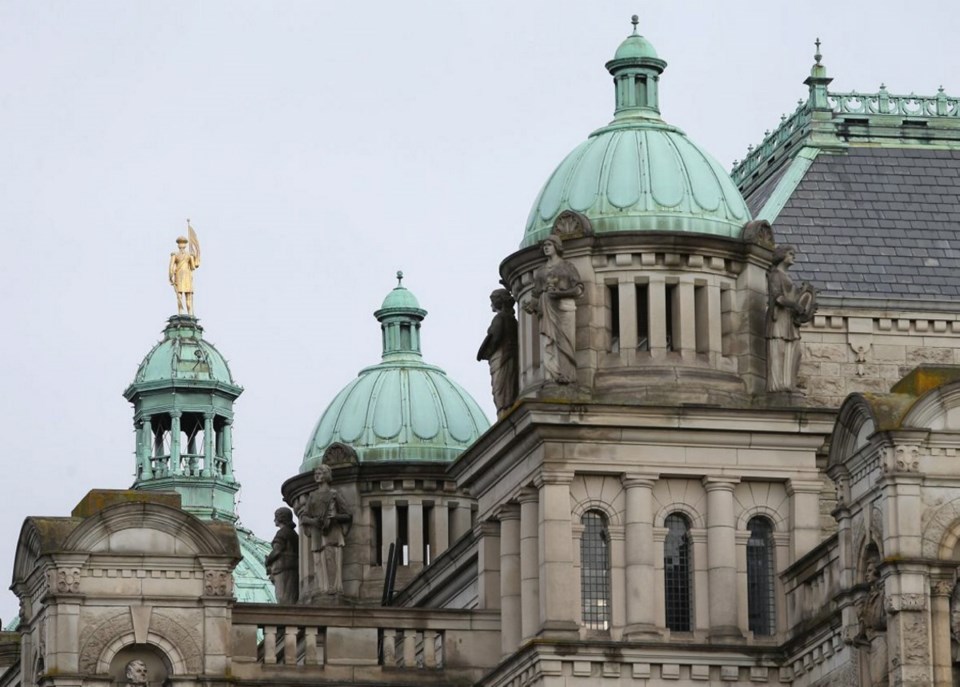Whether a one-time jolt to the economy over the holidays will make a significant difference scarcely matters at this point.
The $1,000 promise to most B.C. families was designed mostly to seal the deal and get the NDP re-elected. So it has already worked as far as they’re concerned. The cost-benefit analysis begins and ends there.
Given that my tiny new fake Christmas tree — purchased because it won’t feel like a real Christmas — cost $60, most people will spend it in a few days, probably on routine bills, according to some online surveys. The relief measure will course through the economy in short order and undeniably provide a brief lift to hundreds of thousands of people.
The legislature will be occupied by the crass politics of it all and the macro-economic pros and cons. But the people who care much about that are vastly outnumbered by those just looking forward to the money.
It was first pitched in the middle of the fall election campaign on Oct. 6. So the obvious argument over the classic vote-buying effort has already come and gone. Finance Minister Selina Robinson was asked Tuesday if there were any other options considered. The opposition Liberals’ matching effort at that time was a plan to eliminate the provincial sales tax for two years.
She said that was a “terrible” idea. The fact the Liberals are still in opposition tells you how well it went over.
“This is a proposal to get money into people’s pockets right now,” she said.
The collective cost will run to $1.7 billion. That’s $300 million more than first estimated, because an increase in disabled and low-income benefits is being wrapped in. That kind of add-on to a provincial budget used to be a big deal, but the provincial deficit is so stretched out of shape this year that it will just get folded into the $13 billion-and-counting in new debt B.C. is taking on during the pandemic.
With that kind of leeway, the NDP put the cash in as many pockets as they could. B.C.’s median family income was most recently measured at $87,600, according to the government. So the sliding eligibility cut-off of $175,000 goes far beyond any notion of just helping low- and middle-income earners. It extends well into comfortable middle-class territory, as measured by last year’s tax returns, in order to help people whose income disintegrated this year.
Families earning under $125,000 will get the full $1,000. Those up to $175,000 will get proportionally reduced amounts, down to $10 for someone just under the $175,000 mark. The benefit for singles follows the same model.
The legislation to make it happen was introduced Tuesday.
(This column mistakenly referred yesterday to the funding as approved in the earlier recovery plan. My apologies.)
In the bill, Robinson also gave herself some more time to put her first budget together. A section amends budget transparency law to extend the deadline for presenting a budget by about a month, to April 30. It will apply in all election years. Similarly, deadlines for making quarterly reports on B.C.’s fiscal situation are being extended by a few weeks. In the meantime, Robinson will give an update on finances next week.
Liberals said citizens will have to stretch the one-time cash through to next May, given that it could take until then for a budget to be presented. So they pressed for more details on a recovery plan.
Veteran Nechako Lakes MLA John Rustad warned the government: “Here’s the reality of what’s happening on the ground. In Fraser Lake today, things have never been worse in terms of seniors needing to go in and get lab work done and get testing.”
He said people are advised now to drive for hours for tests in the middle of winter, in the middle of a pandemic and it’s unacceptable.
Those and other questions were enough to bring John Horgan out of his chair for a quick appearance as the first NDP premier to start a second term.
He welcomed the “valid questions” and “coherent answers” and said the new and invigorated legislature is up to the job.
“I understand that politics are now behind us …”
Doubtful.



